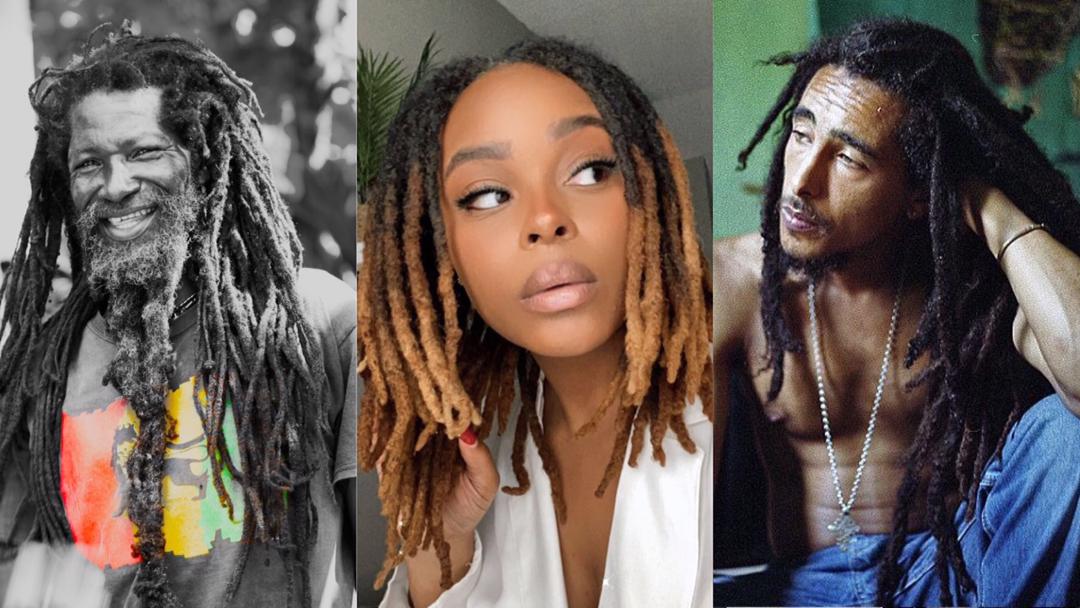In the wake of the debate that has erupted due to the refusal of a Ghanaian school to admit Rastafarian students, we take a deeper look into the beliefs of Ratsa and why they insist on growing their hair.
Here are 10 facts everyone should know about About Rastas, Rastafarianism & Why They Do Not Cut Their Hair.
1, Why Rastas Keep Dredlocks
According to Old Testament scripture (Leviticus 19:27), Rastas believe one should not cut their hair because it is where their strength lies. Dreadlocks form naturally over time.
2, Why Rastas Smoke Marijuana (Weed)
Rastas do not consider marijuana a drug. Instead, it is a medium that is used to open their mind and increase their spiritual awareness. Smoking marijuana is considered a religious ritual.
3, Where Rastas Got Their Philosophies From
Marcus Garvey, born in Jamaica in 1887, was a political activist and supporter of black self-empowerment. Many Rastafari considers Garvey to be a prophet, similar to John the Baptist’s role in Christianity.
In his teachings, he urged those of the African diaspora to not only return to Africa but also “look to Africa, when a black king shall be crowned.” That prophecy was realized with the crowning of the last Emperor of Ethiopia.
4, Why Do Rastas Believe In Haile Selassie I
Followers of Marcus Garvey’s teachings came together to form a religion in 1930 when Haile Selassie I became the Emperor of Ethiopia. Rastafarians consider the Emperor their messiah, naming the movement after his birth name, Ras Tafari Makonnen.
On April 21, 1966, Haile Selassie I visited Jamaica for the first (and only) time. The day is now considered holy, known as Grounation Day. Learn more here.
5, How Many people Belong To The Rastafari Belief
There are approximately one million followers of the Rastafari movement worldwide. Thanks to music (and the Internet), the message of Rastafari has touched people everywhere.
6, Are Rastas Healthy
Generally, Rastas are pretty health-conscious. They consider their body to be a temple, based on the Old Testament teachings. Rastas do not drink alcohol or eat food that is not nourishing to their body, which includes meat. Many follow a strict dietary law called ital, which states that all food must be completely natural and raw.
7, How Do Rastas See Africa
Rastas see Africa as a paradise on earth, and at the core of the movement is the belief that all people of the African diaspora should return to their homeland. Many Rastafari’s hope to return to Africa during their lifetime.
8, What Is The Rastafari Flag
A common misconception of the Rastafari flag is that its colours are red, green, black and yellow. However, the Rastafari colours are red, green, black and gold—and they were all chosen for a specific purpose. Gold (not yellow!) symbolises the wealth of Ethiopia. If you want to know what the other colours signify, click here.
9, Who Started The Rastafari Movement
While we might associate Mr Marley with the movement, he didn’t actually start it! However, there is no denying that the insane popularity of his music helped spread the Rastafari way of life.
10, The Beliefs Of Rastafarians
- Haile Selassie I is the Living God
- The Black person is the reincarnation of ancient Israel, who, at the hand of the White person, has been in exile in Jamaica
- The White person is inferior to the Black person
- Jamaica is hell; Ethiopia is heaven
- The Invincible Emperor of Ethiopia is now arranging for expatriated persons of African origin to return to Ethiopia
- In the near future, Blacks shall rule the world
Other Important Information On Rastafari
From the 1930s until the mid-1970s most Rastafarians accepted the traditional Rastafari beliefs.
But in 1973 Joseph Owens published a more modern approach to Rastafari beliefs. In 1991 Michael N. Jagessar revised Owens’s ideas, devising his own systematic approach to Rastafari theology and providing an insight into the changes in the group’s beliefs.
The key ideas in contemporary Rastafari are:
The humanity of God and the divinity of man
This refers to the importance of Haile Selassie who is perceived by Rastafarians as a living God. Likewise, it emphasises the concept of God revealing himself to his followers through his humanity.
God is found within every man
Rastafarians believe that God makes himself known through humanity. According to Jagessar “there must be one man in whom he exists most eminently and completely, and that is the supreme man, Rastafari, Selassie I.”
God in history
It is very important to see all the historical facts in the context of God’s judgement and workings.
Salvation on earth
Salvation for Rastafarians is an earthly idea, rather than heavenly.
The supremacy of life
Human nature is very important to Rastafarians and they should preserve and protect it.
Respect for nature
This idea refers to the importance and respect Rastafarians have for animals and the environment, as mirrored in their food laws.
The power of speech
Speech is very important to Rastafarians, as it enables the presence and power of God to be felt.
Evil is corporate
Sin is both personal and corporate. This means organisations such as the International Monetary Fund are responsible for Jamaica’s fiscal situation, and that oppression is in part influenced by them.
Judgement is near
This corresponds to the nearness of judgement for Rastafarians when they will be given greater recognition.
The priesthood of Rastafarians
Rastafarians are the chosen people of God and are on earth to promote his power and peacefulness.
(Joseph Owens The Rastafarians of Jamaica, 1973 pp. 167-70 and Jagessar, JPIC and Rastafarians, 1991 pp. 15-17.)
Sources: Island Outpost, BBC Religion, Ghbase.com
